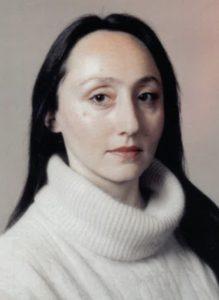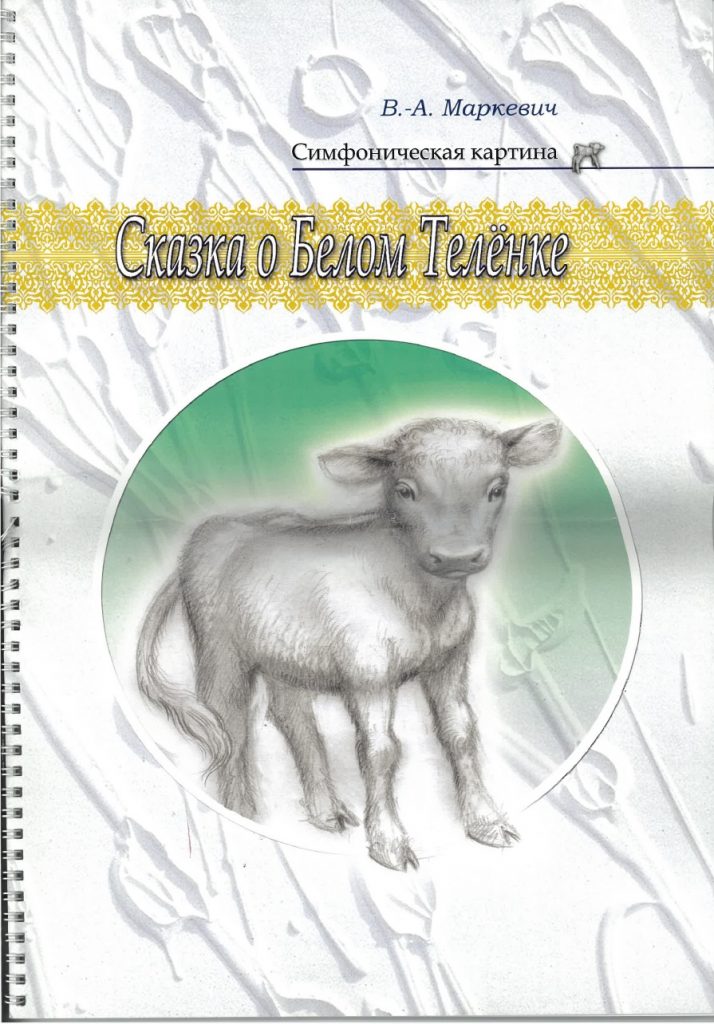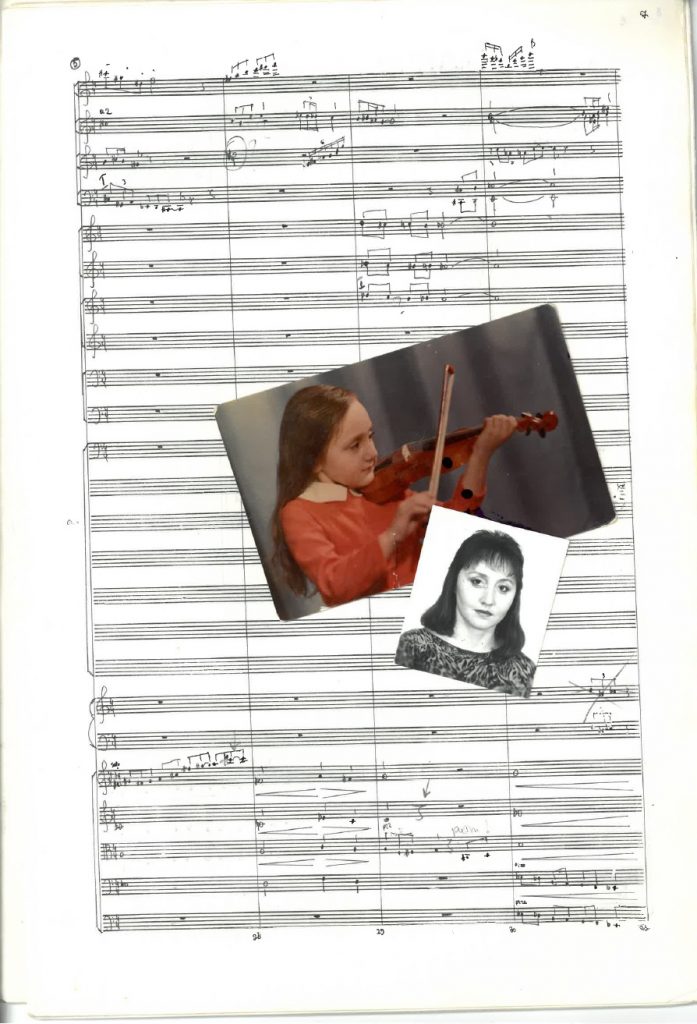
We don’t know much about the life of Weronika Aleksandra Markiewicz. Four large cardboard boxes containing her estate are stored with us in the Archiv Frau und Musik. In March 2007, the cultural department of the German Embassy in Warsaw informed us of the possibility of receiving part of Markiewicz’s musical estate. A few months later, the boxes arrived in Frankfurt. Within are notebooks, audio cassettes, pens, photos of the composer, but above all, sheet music. Hundreds of objects and documents have been collected here, but we still find it difficult to tell a life story through them. We know the rough dates, but how can they be put together to form a picture of the artist?
The composer and singer Weronika Aleksandra Markiewicz was born Weronika Aleksandra Biłogubka on 27 January 1962 in Lviv, Ukraine – in the course of her life she had her surname changed twice. Her mother Zofia Leżańska (musicologist and pianist) and her father Anton Biłogubka (singer and conductor) encouraged their daughter’s musical interest early on. She spent her childhood in Novosibirsk, where her father studied music. Mother and daughter moved to Poland in 1981; there, Markiewicz first took singing lessons in Warsaw, and then studied singing and acting at the Academy of Music in Gdańsk. After graduating, Markiewicz went back to Lviv once again to study composition. She finished her studies in 1996 – her final composition was the large-scale symphonic poem Bajka o białym cielątku (The Fairy Tale of the Little White Calf). After that, Markiewicz composed commissioned works and sang concerts throughout Europe. The mezzo-soprano performed her own works, but also opera arias and Polish, Russian, or Yiddish songs. Weronika Aleksandra Markiewicz died in Lublin in 2003 at the age of only 41 from the effects of cancer.
Unusual Estate

Her estate in the Archiv Frau und Music is marked by her mother Zofia Leżańska. She was the one who compiled it, published her daughter’s sheet music, and communicated with the archive. Markiewicz’s photos mostly show holidays taken by mother and daughter together. The mother is as present as the father is absent. We know his name, the wedding photo of his parents, and that he was a singer. But after 1981, when he moved to Poland, we lose track of him. Did he die? Did the parents separate? Why did mother and daughter move to Poland, though neither spoke Polish? Did Markiewicz’s early name change have anything to do with her father’s whereabouts? We do not have any answers, and it will be difficult to find out. Especially since, in the winter of 2019, the mother also died in Poland.
Weronika Markiewicz’s life probably can’t be understood without a look at the tense history between the Soviet Union and later Ukraine and Poland. Her birthplace, Lviv in today’s Ukraine, was inhabited by a majority of Poles; when mother and daughter moved to Poland in 1981, the workers’ movements there around the Solidarność trade union led to far-reaching political and social upheavals which also changed the relationship between the neighbouring countries. Neither Markiewicz’s estate nor her mother’s letters contain any references to or statements about the political events of the time; we do not know whether they influenced the composer’s life. Markiewicz apparently changed her surname because her former name caused irritation in Poland.
Wanted Identity?

But what runs through the estate and the reports is Markiewicz’s confrontation with her identity as a Jew. In Warsaw, she took a language course in Yiddish at the Institute of Jewish History; her estate contains several notebooks with her Yiddish exercises, but Hebrew texts and writing exercises are also preserved there. There’s an impressive amount of cassettes with recordings of Yiddish and Hebrew songs which Markiewicz sang as encores at performances. In 2000, she was jointly responsible for the programme of the VIII. Finale of the Great Orchestra of Christmas Charity in the Municipal House of Culture in Żyrardów (Poland), where she performed and presumably sang in the musical Anatevka – Once I’m Rich. The musical is set around 1905 in the fictional shtetl of Anatevka. This is situated in the settlement area of the Russian Empire, i.e. the area in which the Jewish population’s right to live and work was restricted between the end of the 18th and the beginning of the 20th century. Anatevka shows the life of Polish Jews between celebrations and repression. Did Weronika Markiewicz find herself in this play about the traditions of the Eastern Jewish population? Or was she mainly interested in the Yiddish folk songs that were reflected in it.
The search for Weronika Aleksandra Markiewicz, the composer behind the estate objects, continues. However, we are left with her wonderful compositions and recordings of her arias and songs.
Numerous audio recordings, photographs, and autographs from the estate of Weronika Aleksandra Markiewicz can be seen on the Digital German Women’s Archive site.
As part of the project #WhatAreWeWaitingFor?, a personal essay on Weronika Aleksandra Markiewicz has been published in the Digital German Women’s Archive.
